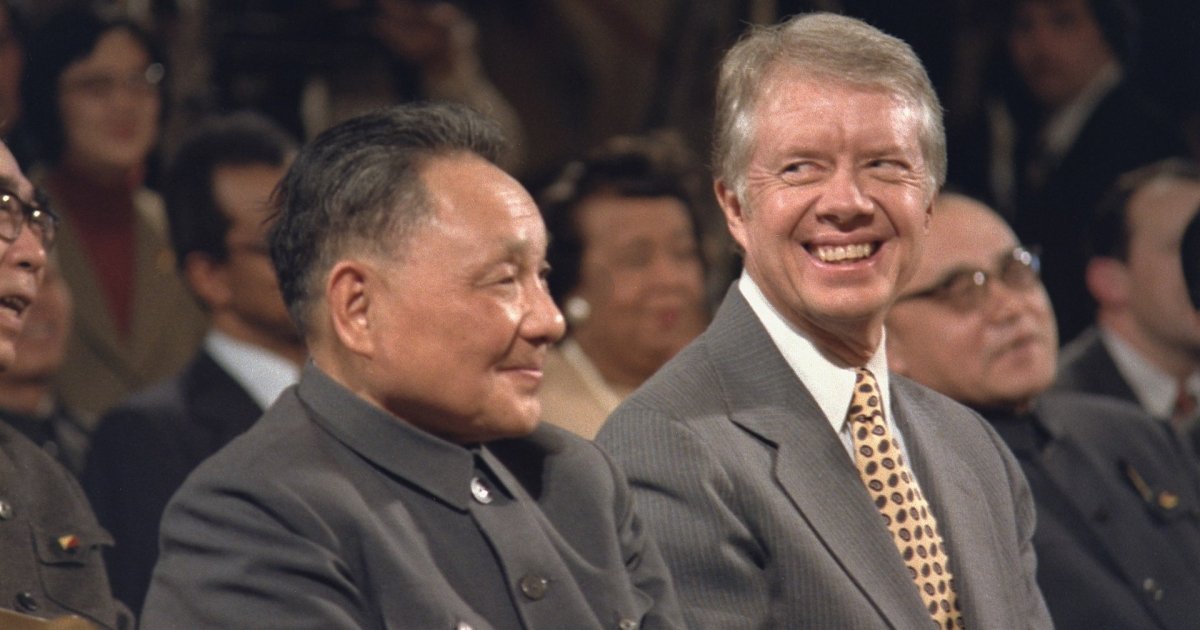
The guiding ideology of Marxism, the common ideal of the socialism with Chinese characteristics, the national spirit with patriotism as the core, the spirit of the times with reform and innovation as the core, and the socialist concept of honour and disgrace constitute the basic contents of the socialist core values system. We should persist in integrating the socialist core values system into the entire process of national education and the building of a spiritual civilization and having it run through the various aspect of the modernization drive.
Has China stayed true to its communist ideals and unique culture as it has transitioned to a world power? To answer this, we must know what their ideology is in the first place.

The ideas of Marx and Lenin form the original CCP ideology, which was based the hypothesis that every economy would eventually converge to a communistic one, going through the stages of first feudalism, then capitalism, socialism, and finally communism.
Having an explicit ideology was important to the Party, because as the CCP General Secretary Jiang Zemin thought, the ideology was the glue that kept the nation strong and focused on the right path.
The CCP claims that it has never abandoned this original Marxist ideology, although it doesn't appear so based on their current state. It also believes that the CCP is in the socialist stage of the four-part series, although many analysts would agree that it is actually in its capitalist stage.

The Party realized that the world was changing, and that they needed to adapt their ideology so the country wouldn't fall behind. So in 1986, Deng focused on the production and development of the economy, and de-emphasized the class struggle of the previous era.
He was pragmatic in increasing the production of China, using methods previously unused like opening it up to worldwide trade. Of course, the general pattern we see is that the CCP's ideology has deviated far away from the original ideas of Marx and Lenin.

All of this ideological shape-shifting can only mean one thing for the ideology of the CCP: it isn't really an ideology, it's whatever the Party finds convenient for its own power.
This explains the CCP's actions towards Hong Kong. In fact, in Xi Jinping's ideological document, Xi Jinping Thought on Socialism with Chinese Characteristics for a New Era, it explicitly says on point number 10 that:
Promoting the one country, two systems system for Hong Kong and Macau with a future of "complete national reunification"; and to follow the One-China policy and 1992 Concensus for Taiwan.
There's a bit of doublethink going on here. The "One Country, Two Systems" principle is supposed to allow Hong Kong to have some level of autonomy for its internal affairs and governance. However, what Xi is referring to is something else entirely: he wants to have unfair control over Hong Kong and "complete national reunification".
Equally concerning is point number ten, which simply says: "Strengthen national security". This explains the escalation of Draconian laws imposed on Hong Kong; not just the 2019 extradition law, but also the following national security law that criminalized activism.
The truth is, China has always interfered in Hong Kong's government, even from the beginning. It was a false promise that they would allow them to have "One Country, Two Systems", because China has historically dictated Hong Kong in their own selfish interest.
It's true that there are "Marxist"-sounding points like point number two, which says:
The Chinese Communist Party should take a people-centric approach for the public interest.
But clearly, as we've seen time and time again in Hong Kong, the CCP does not care about the people when political power is involved. They promised autonomy for the people through civil liberties and an independent judiciary, but failed to deliver. They also failed to follow through on their word in 2007, when the Standing Committee of the National People's Congress promised universal suffrage for the Chief Executive and all members of the Legislative Council by 2017.
With all this talk about Marxism and Leninism, it's odd that the socialist government of China, which is supposed to provide for its people and help people generally (as real socialist governments do), strips its own people of civil rights and liberties. As one anonymous man put it from the 2019 protests: people from the mainland are brainwashed. They do not know what it is like living in a free world, because they never had true freedom.
It's less about whether China is following its ideology and more about its power. Of course China follows its own ideology, because it has been optimized for their current situation. Is it real socialism? No, because it has long since abandoned the Marxist-Leninist idea, which calls for democratic centralism in which a single entity represents the workers' desires.